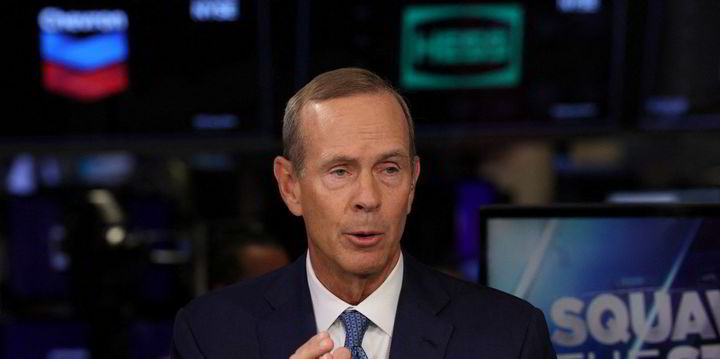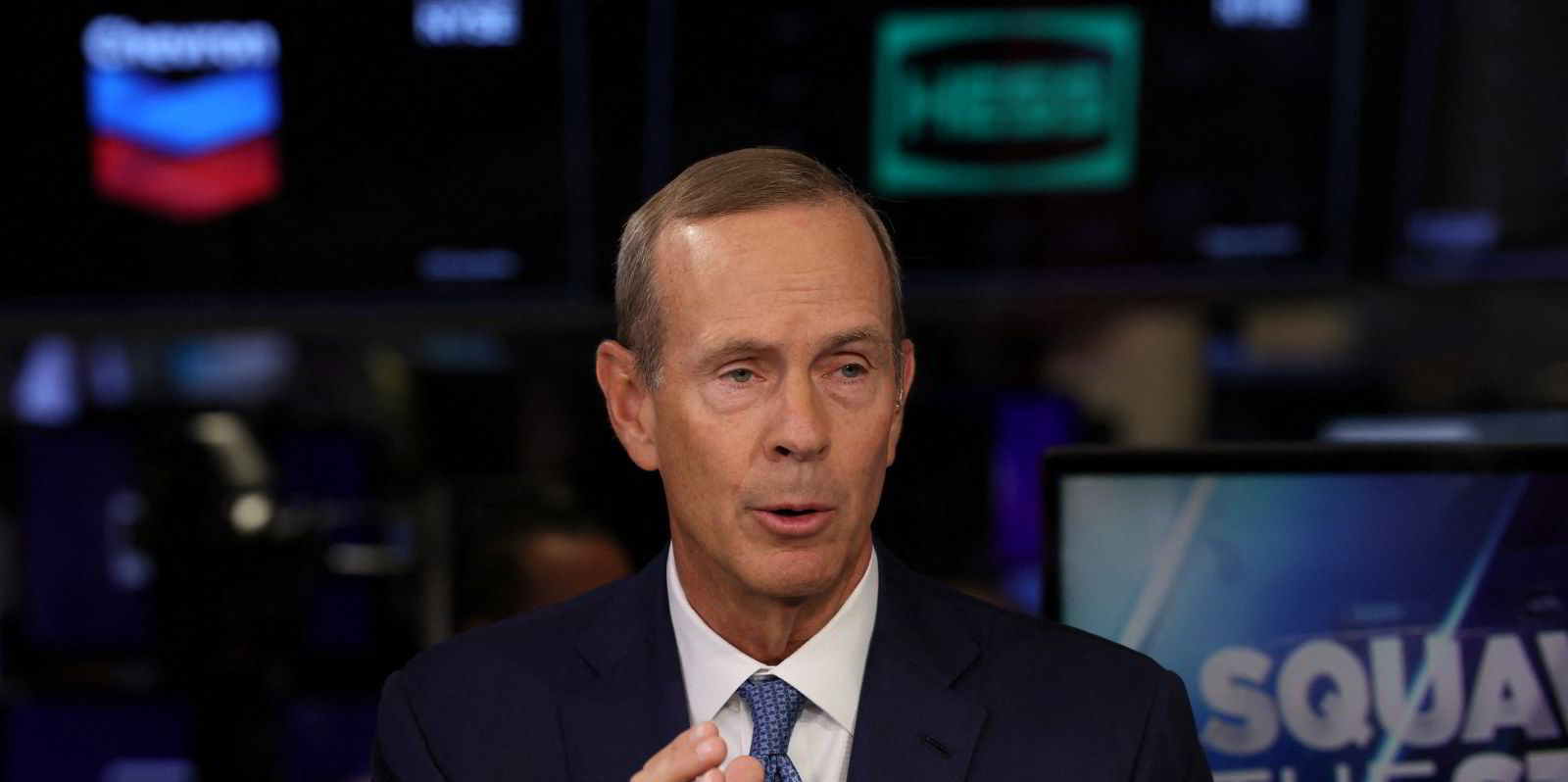Supermajors are adopting different tactics to respond the deteriorating security situation in the Middle East with Shell reportedly electing to suspend its vessels’ movements in the Red Sea while Chevron is continuing its shipping operations.
US supermajor Chevron is still transporting crude oil in the region as the company is working closely with the US Navy’s Fifth Fleet and naval authorities in the Middle East, chief executive Mike Wirth said, adding that the company is closely monitoring the situation.
“On every voyage we have a security plan and it’s really ship by ship that we evaluate the situation,” Wirth was quoted by Bloomberg.
“We have not made fundamental changes to how we’ve been moving ships over the last few weeks.”
However, the Chevron boss on Tuesday admitted that the security situation on the ground seems to be getting worse.
Speaking to CNBC on the sidelines of the World Economic Forum in Davos, Switzerland, Wirth said he was surprised that WTI crude was trading below $73 a barrel because the “risks are very real”.
Article continues below the advert
Upstream has approached Chevron for comment.
Meanwhile, UK supermajor Shell is the latest energy company to indefinitely suspend all of its shipments through the Red Sea after US and UK strikes on Yemen’s Houthi rebels triggered fears of further escalation, the Wall Street Journal reported on Tuesday, citing people familiar with the decision.
Attacks on ships by the Houthis, who say they are acting in solidarity with Palestinians, have disrupted shipping movements including those of liquefied natural gas carriers and oil tankers in the Red Sea and the Suez Canal.
Shell last week reportedly elected to halt all of its vessels’ crossings over concerns that a successful attack could trigger a massive spill in the region, as well as present risks to the safety of crews on the ships, according to the WSJ.
Upstream has approached Shell for comment.
The Houthis have stated that their attacks on shipping in the Red Sea is in retaliation for the Israeli offensive in Gaza.
The attacks have made treacherous the crossing through the Bab al-Mandab Strait, a less than 20-mile stretch of water between the Arabian Peninsula and Africa that connects the Red Sea with the rest of the Indian Ocean.
Most of the LNG, oil and product carriers that travel through the Suez Canal also have to pass by the strait.
Shell’s move comes as other industry heavyweights including BP, QatarEnergy and Equinor have also suspended vessel movements in the area.

